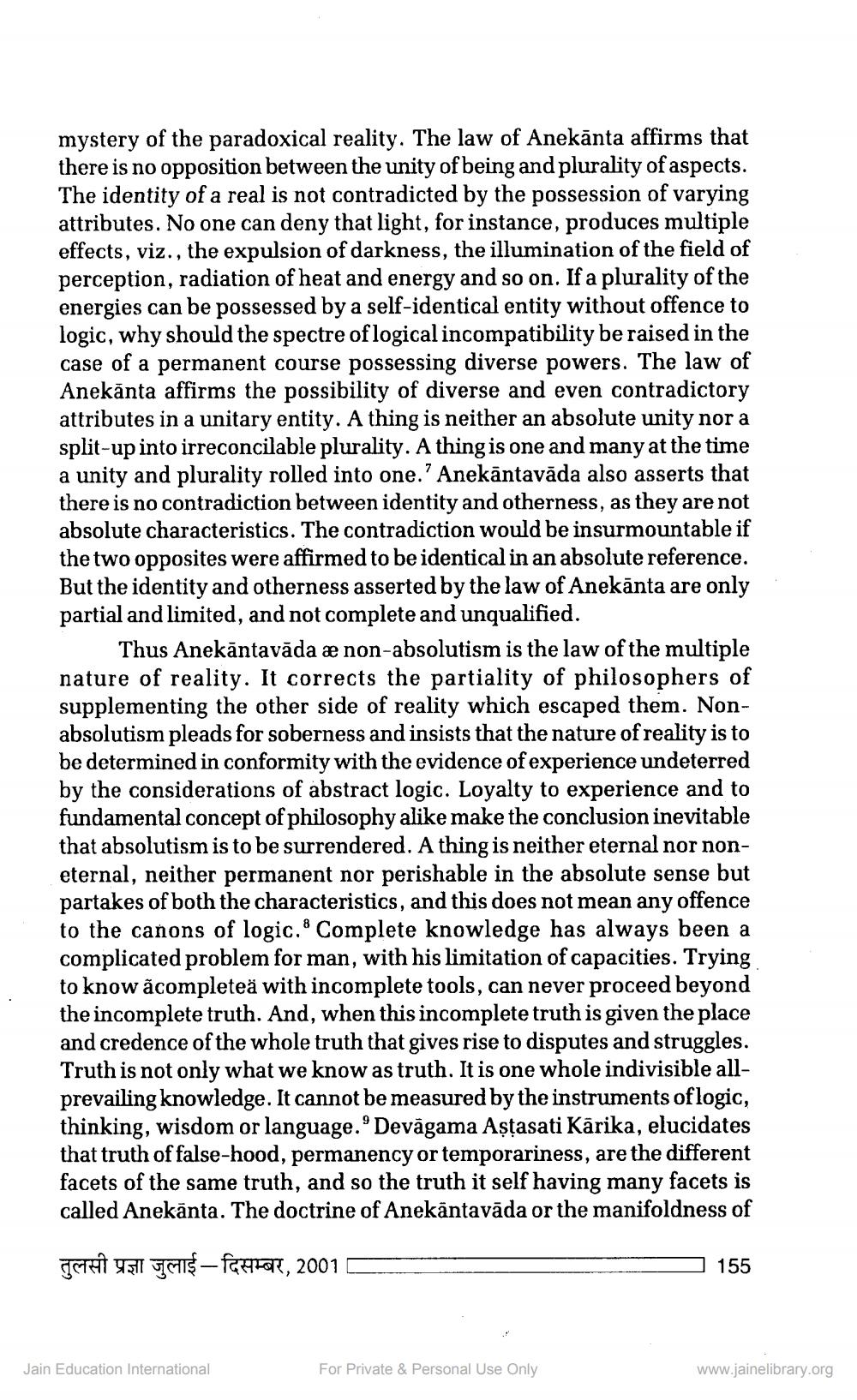________________
mystery of the paradoxical reality. The law of Anekanta affirms that there is no opposition between the unity of being and plurality of aspects. The identity of a real is not contradicted by the possession of varying attributes. No one can deny that light, for instance, produces multiple effects, viz., the expulsion of darkness, the illumination of the field of perception, radiation of heat and energy and so on. If a plurality of the energies can be possessed by a self-identical entity without offence to logic, why should the spectre of logical incompatibility be raised in the case of a permanent course possessing diverse powers. The law of Anekanta affirms the possibility of diverse and even contradictory attributes in a unitary entity. A thing is neither an absolute unity nor a split-up into irreconcilable plurality. A thing is one and many at the time a unity and plurality rolled into one.' Anekantavāda also asserts that there is no contradiction between identity and otherness, as they are not absolute characteristics. The contradiction would be insurmountable if the two opposites were affirmed to be identical in an absolute reference. But the identity and otherness asserted by the law of Anekanta are only partial and limited, and not complete and unqualified.
8
Thus Anekāntavāda æ non-absolutism is the law of the multiple nature of reality. It corrects the partiality of philosophers of supplementing the other side of reality which escaped them. Nonabsolutism pleads for soberness and insists that the nature of reality is to be determined in conformity with the evidence of experience undeterred by the considerations of abstract logic. Loyalty to experience and to fundamental concept of philosophy alike make the conclusion inevitable that absolutism is to be surrendered. A thing is neither eternal nor noneternal, neither permanent nor perishable in the absolute sense but partakes of both the characteristics, and this does not mean any offence to the canons of logic. Complete knowledge has always been a complicated problem for man, with his limitation of capacities. Trying to know ǎcompleteä with incomplete tools, can never proceed beyond the incomplete truth. And, when this incomplete truth is given the place and credence of the whole truth that gives rise to disputes and struggles. Truth is not only what we know as truth. It is one whole indivisible allprevailing knowledge. It cannot be measured by the instruments of logic, thinking, wisdom or language. Devagama Aṣṭasati Karika, elucidates that truth of false-hood, permanency or temporariness, are the different facets of the same truth, and so the truth it self having many facets is called Anekanta. The doctrine of Anekantavada or the manifoldness of
तुलसी प्रज्ञा जुलाई - दिसम्बर, 2001
Jain Education International
For Private & Personal Use Only
155
www.jainelibrary.org




